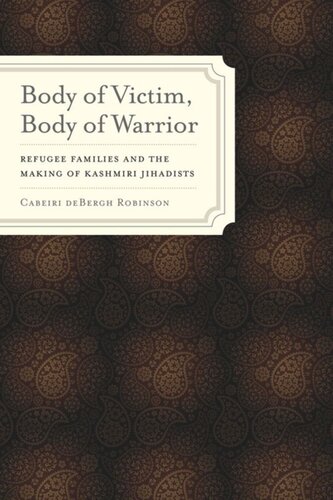

Most ebook files are in PDF format, so you can easily read them using various software such as Foxit Reader or directly on the Google Chrome browser.
Some ebook files are released by publishers in other formats such as .awz, .mobi, .epub, .fb2, etc. You may need to install specific software to read these formats on mobile/PC, such as Calibre.
Please read the tutorial at this link: https://ebookbell.com/faq
We offer FREE conversion to the popular formats you request; however, this may take some time. Therefore, right after payment, please email us, and we will try to provide the service as quickly as possible.
For some exceptional file formats or broken links (if any), please refrain from opening any disputes. Instead, email us first, and we will try to assist within a maximum of 6 hours.
EbookBell Team

4.1
80 reviewsThis book provides a fascinating look at the creation of contemporary Muslim jihadists. Basing the book on her long-term fieldwork in the disputed borderlands between Pakistan and India, Cabeiri deBergh Robinson tells the stories of people whose lives and families have been shaped by a long history of political conflict. Interweaving historical and ethnographic evidence, Robinson explains how refuge-seeking has become a socially and politically debased practice in the Kashmir region and why this devaluation has turned refugee men into potential militants. She reveals the fraught social processes by which individuals and families produce and maintain a modern jihad, and she shows how Muslim refugees have forged an Islamic notion of rights—a hybrid of global political ideals that adopts the language of human rights and humanitarianism as a means to rethink refugees’ positions in transnational communities. Jihad is no longer seen as a collective fight for the sovereignty of the Islamic polity, but instead as a personal struggle to establish the security of Muslim bodies against political violence, torture, and rape. Robinson describes how this new understanding has contributed to the popularization of jihad in the Kashmir region, decentered religious institutions as regulators of jihad in practice, and turned the families of refugee youths into the ultimate mediators of entrance into militant organizations. This provocative book challenges the idea that extremism in modern Muslim societies is the natural by-product of a clash of civilizations, of a universal Islamist ideology, or of fundamentalist conversion.